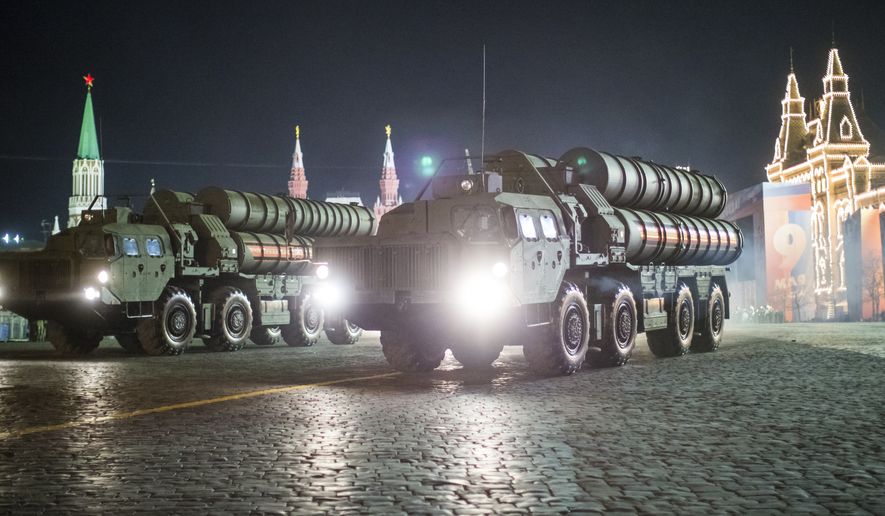It is possible for longtime NATO allies Turkey and the United States to reach an amicable deal over Ankara’s deal to purchase Russian-made missile defense systems, despite growing animosity between Washington and Ankara, NATO Secretary-General Jens Stoltenberg said Friday.
Alliance leaders have been working continuously with their American and Turkish counterparts to help both nations resolve their ongoing standoff over the Russian S-400 missile deal, he said.
Mr. Stoltenberg acknowledged the potential pitfalls of Turkey’s plan to acquire and field the S-400 system, but stressed the importance of recognizing Turkey’s contributions to American and alliance-led operations worldwide.
“Turkey is a very important ally to NATO, for many reasons,” he said.
His comments come as congressional lawmakers and Trump administration officials press ahead with plans to bar Turkey from purchasing the next-generation F-35 Joint Strike Fighter. Legislative language temporarily banning Ankara from the international weapons program, included in the Pentagon’s defense spending bill for this fiscal year, was in retaliation to Turkey’s decision to buy the Russian-made S-400 missile system.
Since entering the Russian arsenal in 2007, the S-400 Triumf air defense system, which is also known by the NATO moniker SA-21 Growler, has quickly assumed the mantle as Moscow’s premiere anti-aircraft missile system. Touted as a direct competitor to the American-made PAC-3 Patriot air defense missile system and the Terminal High-Altitude Area Defense, or THAAD — the main ballistic missile defense system fielded by U.S. forces — Moscow has recently ramped up its marketing of the weapon to foreign militaries, including Turkey.
Opponents of the S-400 inside and outside the Pentagon deal say Ankara’s decision to field the Russian-made anti-aircraft missile system will draw Turkey deeper into Moscow’s growing sphere of influence in the Middle East.
Turkey was reportedly motivated to seal the missile deal with Russia, a near-peer military competitor to the United States, in part by its frustration over Washington’s backing of Kurdish militant groups battling the Islamic State in Syria.
Kurdish People’s Protection Units, or YPG, play a large role in the Syrian Democratic Forces, or SDF, the loose-knit group of Arab and Kurdish paramilitaries that drove the Islamic State from its Iraqi and Syrian redoubts in Mosul and Raqqa, respectively. The YPG is the armed faction of the Kurdistan Workers Party or PKK, which Turkey has labelled as a terrorist organization.
On Friday. Mr. Stoltenberg emphasized Turkey’s contributions to the fight against the Islamic State, noting that among all NATO allies, Ankara has suffered the most from terrorist attacks by the YPG and other Kurdish separatists groups operating in the country.
• Carlo Muñoz can be reached at cmunoz@washingtontimes.com.




Please read our comment policy before commenting.